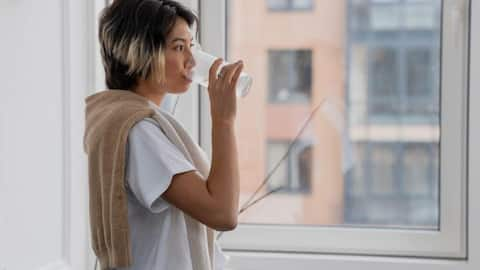The art and science of Japanese water therapy
What's the story
Staying hydrated is vital for a healthy body, and various methods exist for consuming water. One such technique is Japanese water therapy, referred to as Mizu-no-ryoho, which emphasizes drinking room-temperature water upon waking up each morning, before brushing your teeth or consuming any food. Advocates suggest numerous potential health benefits linked to this practice. Let's explore this further to uncover its claimed advantages.
Concept
Let's understand the concept
This practice essentially focuses on the timing of drinking water. It entails consuming warm or room-temperature water on an empty stomach as soon as you wake up to cleanse the digestive tract. Proponents of the therapy argue that cold water is bad for you because it can solidify fats and oils in food, which can impede digestion and lead to illness.
Therapy
Principles of the therapy
When you wake up in the morning, drink four to five glasses (about 1.5 liters) of water on an empty stomach. Brush your teeth after drinking water. Take a small break if you're unable to drink all at once. Wait for 45 minutes before eating breakfast. Eat for no more than 15 minutes at a time, and wait at least two hours between meals.
Benefits
Major health benefits
This practice is said to improve digestion as drinking water is said to increase the regularity of bowel movements and eliminate toxins. Drinking water can also improve energy and cognitive performance. It is believed that consuming more water will boost satiety and decrease calorie consumption, thereby assisting in weight loss. Further, the therapy might also positively impact skin health, leading to a clearer complexion.
Side-effects
Potential side effects
People often don't have enough time in the morning to wait for 45 minutes after drinking water. This would lead them to skip breakfast. If you down so much water in the morning all at once, you'll be rushing to the restroom several times before midday. Some may experience discomfort such as bloating or nausea due to overhydration on an empty stomach.
